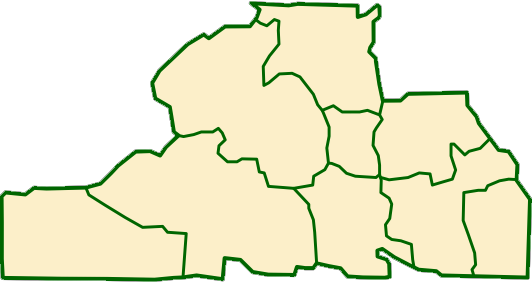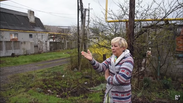NYT утверждает, что армия ворует мирных граждан Донбасса для обмена пленными
Не имея достаточного числа пленных ополченцев, киевские власти обменивают захваченных ими по разным причинам мирных граждан на попавших в плен украинских военнослужащих, говорится в статье, опубликованной в среду на сайте газеты The New York Times.
В соответствии с достигнутыми между Киевом и ополченцами договоренностями о прекращении огня между сторонами сейчас почти ежедневно производится обмен пленными, но если повстанцы действительно передают плененных военнослужащих, то украинская сторона нередко передает мирных граждан, в том числе подростков, говорится в статье.
"Украинцы, как полагают, не имея достаточного числа собственных пленных для осуществления обмена "одного на одного", освобождают разрозненные группы мужчин, женщин и подростков, одетых в спортивные костюмы или грязные джинсы, доставленных чуть ли не из Киева", - сообщило издание. Как отмечает The New York Times, "после обмена многие из них жаловались всем, кто был готов их выслушать, на то, что они никогда не воевали" за ополченцев и не имеют "ни малейшего представления о том, почему они попали в группу обмена на востоке Украины".
Автор статьи, в частности, побеседовал с одним из таких людей. По словам 17-летнего подростка, украинские солдаты арестовали его две недели назад при отступлении в городе недалеко от линии фронта. Они обвинили подростка в принадлежности к "банде убийц", действующей за линией фронта, но никаких доказательств этого не представили.
"Я никогда не воевал, никого не убивал, - рассказал подросток. - Они арестовали меня, два дня избивали, а затем держали меня для обмена".
В минувшее воскресенье его обменяли на 28 украинских силовиков в составе группы из 28 человек, среди которых лишь семеро были повстанцами.
"В интервью на месте обмена и позже в Донецке десятки мужчин, освобожденных в выходные в ходе обмена на украинских военных, рассказали аналогичные истории", - отмечает автор статьи. Они сообщили, что были арестованы несколько месяцев назад в других районах Украины за "такие политические акции, как совместные призывы к автономии Восточной Украины, или за распространение листовок".
















Комментарии
DONETSK, Ukraine — At first glance, the prisoner swap between the Ukrainian government and pro-Russian separatists appeared fair enough: On a deserted stretch of highway along the front line, each side released 28 captives, observing a principle of numerical parity.
Under the watchful eyes of mediators from the Organization for Security and Cooperation in Europe, the prisoners walked past one another to freedom.
Then the questions started to pop up. The pro-Russian separatists — who with the aid of the Russian Army routed the Ukrainians in battles in August, taking many captives — released men appearing to be actual prisoners of war.
The Ukrainians, however, widely understood to be lacking enough prisoners of their own to effect a one-for-one exchange, set free a motley group of men, women and teenagers wearing tracksuits or dirty jeans, and taken, they said, from jails as far away as Kiev.
Soon enough, many of them were objecting to anybody who would listen there on the highway that they had never fought for pro-Russian separatists, and in fact had no idea how they ended up in a prisoner exchange in eastern Ukraine.
“I am a civilian and I was included just to fill out the numbers,” Nikita Podikov, 17, said in an interview. Ukrainian soldiers arrested him in a town near the front lines two weeks ago as they pulled back during a retreat, he said.
Mr. Podikov said the authorities accused him of belonging to a gang of pro-Russian assassins working behind enemy lines, but never gave any proof. “I never fought, I never killed anybody,” he said.
“They arrested me, beat me for two days and then kept me for trading,” he said. On Sunday, he wound up in a prisoner swap of 27 men and one woman, only seven of whom were rebel fighters.
In interviews at their point of release and in a dormitory where former detainees are housed in Donetsk, a dozen men freed in exchanges over the weekend by the Ukrainian Army gave similar accounts.
Some said they were arrested months ago in other parts of Ukraine for pro-Russian political actions, such as joining protests calling for autonomy in eastern Ukraine or for distributing leaflets.
The prisoner exchanges now taking place daily in eastern Ukraine are helping to solidify a fragile truce by building trust between negotiators and bringing relief to detainees and their families. The process is also emphasizing the scale of the Ukrainian setbacks and Kiev’s lack of leverage on a host of issues, including prisoner swaps, left open in the Sept. 5 cease-fire agreement that ended hostilities.
The agreement required both sides to free all prisoners, but the separatists, holding hundreds of regular Ukrainian soldiers, are demanding one-for-one swaps that they are using to free people jailed in western Ukraine for political activities and other nonmilitary reasons.
An elaborate weighing of the exchange rate for prisoners takes place on both sides in preparation for such swaps. On both sides, said Vladimir Ruban, a retired Ukrainian officer and senior negotiator, the prisoners are divided into several categories, each valued differently, such as civilians arrested in protests, prisoners of war, and suspected spies.
Continue reading the main storyContinue reading the main story
Officers, snipers, suspected spies and soldiers with grave wounds that need immediate treatment are deemed the most valuable in trades, negotiators say.
“Just as we forgot how to fight, we forgot how to exchange prisoners, and so we are now learning this art again,” Mr. Ruban said. “It’s a new experience.”
A common trade appears to be one Ukrainian private for one pro-Russian political agitator arrested during protests in Ukraine last spring outside the Donetsk or Luhansk regions.
Mr. Ruban has negotiated more complex deals. Earlier this year, for example, Igor Bezler, a rebel commander who went by the nickname Bes, or the Devil, traded 17 Ukrainian officers for one woman, Olga Koligina, whose value to him was something of a mystery. “It is more difficult than a simple bank transaction,” Mr. Ruban said.
Ukrainian officials have issued conflicting figures on the numbers of Ukrainian soldiers in captivity.
On Friday, Semen Semenchenko, the commander of the Donbass battalion, wrote on his Facebook page that 853 Ukrainian soldiers remained in rebel hands and 408 were missing in action. On Tuesday, Mr. Ruban’s group, called Officer Corpus, a nongovernmental organization of retired military officers negotiating releases, reported that 504 Ukrainian soldiers remained in captivity.
In Sunday’s trade, the buses stopped on the highway a few hundred yards apart, their headlights shining in the deepening twilight, artillery explosions booming in the distance.
Oksana Bilozir, a former member of the Ukrainian Parliament engaged in hostage negotiations on behalf of the Kiev government, walked across the front line to check lists with a separatist counterpart, before the prisoners went free.
One man released by the Ukrainian Army, Oleg Furman, 43, said he was a soldier for the Luhansk People’s Republic, one of the rebel groups here. The Ukrainians suspected he was a sniper, he said, and so broke his trigger finger, which was still cocooned in gauze bandages.
His special value may have helped the trade, he said, though he denied he was a sniper. “I’m fine other than having five broken ribs and a broken finger,” he said.
More typical of those released over the weekend was Valery Ginsberg, a businessman from Kiev, who was let loose on the highway in a swap on Saturday.
In an interview, he said he had never been to Donetsk. In Kiev, he was indeed known as a supporter of closer economic ties with Russia. He had been arrested on a pretext, he said.
“They traded us like cattle,” he said. “I’m a citizen of Ukraine. How can they do this? I would have proved my innocence. I wanted to prove my innocence. But they never asked me.”
Из почты:
Обращаюсь к тебе, как корреспонденту или же лицу, близкому к СМИ. У моей знакомой пропал муж - 72-летний дядька. Живут они в Горловке, в четверг утром он поехал в Артёмовск за пенсией и хлебом. В четверг вечером позвонил и сказал, что его развернули на укрпосту нацгвардейцы за то, что прописка у него - харьковская, а едет в Горловку к жене. Возвращают в Артёмовск до выяснения.
В пятницу утром Людмила дозвонилась до него, он сдавленным голосом сказал, что сейчас говорить не может, но скоро будет дома.
В субботу утром она снова дозвонилась до него после многочисленных попыток, он сказал, что очень её любит и отсоединился.
А в понедельник с его номера позвонила некая мадам и сообщила, что он находится в в больнице г.Харькова избитый, без сознания, в состоянии комы - без денег, без хлеба (он вёз домой 6 буханок), без лекарств для Людмилы и без пенсионной карточки. Сказала, чтоб не волновались - о нём здесь позаботятся, и через 3 дня он станет на ноги.
Знакомые Людмиле харьковчане прошерстили все больницы Харькова. Людмилы мужа там нет. На связь больше по его телефону никто не выходит.
Как думаешь, его могли заграбастать, чтоб потом обменять на пленных солдат?
Что можешь посоветовать делать? Куда обратиться? Может, подключить СМИ к расследованию его исчезновения? Если да, то какие СМИ?